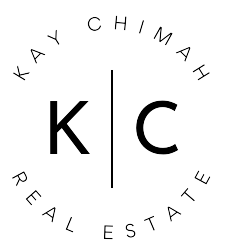Buying your first home is an exciting milestone, but it can also be overwhelming, especially with all the steps involved. As a first-time homebuyer in Ontario, understanding the process and being well-prepared can make a big difference. Here are some essential tips to help you navigate the journey and ensure a smooth purchase.
1. Assess Your Financial Situation
Before diving into the home-buying process, take a close look at your finances. Determine how much you can afford by considering:
- Your savings: How much do you have for a down payment and closing costs?
- Your debt-to-income ratio: Lenders will look at your existing debts compared to your income.
- Credit score: A higher credit score can qualify you for better mortgage rates.
- Monthly budget: Consider all housing costs, including mortgage payments, property taxes, utilities, and maintenance.
Setting a realistic budget will prevent you from falling in love with a home that’s out of reach and help you make a more informed decision.
2. Get Pre-Approved for a Mortgage
A mortgage pre-approval is a written commitment from a lender stating how much they’re willing to lend you based on your financial situation. This process gives you:
- Clarity on your budget: Knowing your price range helps you focus your home search.
- A competitive advantage: Sellers prefer offers from pre-approved buyers because they’re seen as more serious.
- Better interest rate options: Pre-approval can also lock in an interest rate for up to 120 days, protecting you from rate increases during your search.
Shop around and compare rates from multiple lenders to find the best mortgage for your situation. Consider working with a mortgage broker who can provide access to a variety of lenders.
3. Understand Your Down Payment Requirements
In Ontario, your down payment depends on the home’s purchase price:
- For homes costing $500,000 or less, the minimum down payment is 5%.
- For homes priced between $500,000 and $999,999, it’s 5% of the first $500,000 and 10% for the amount above $500,000.
- For properties over $1 million, a 20% minimum down payment is required.
The larger your down payment, the less you’ll need to borrow, which can reduce your monthly payments and interest costs over the life of the mortgage.
4. Factor in Additional Costs
Many first-time buyers focus on the purchase price and overlook additional expenses, which can add up quickly. Be prepared for costs such as:
- Closing costs: Legal fees, land transfer taxes, title insurance, and home inspection fees can range from 1.5% to 4% of the purchase price.
- Moving expenses: Don’t forget to budget for movers, utility hook-ups, and any immediate repairs or renovations.
- Property insurance: Home insurance is mandatory for mortgage approval and adds to your monthly budget.
- Ongoing maintenance and utilities: Plan for regular expenses like heating, electricity, and repairs.
Budgeting for these costs ensures you aren’t caught off guard and can enjoy your new home without financial stress.
5. Choose the Right Type of Home for Your Needs
There are various types of residential properties available in Ontario, such as detached homes, townhouses, condos, and semi-detached houses. Each comes with its pros and cons:
- Detached homes offer more space and privacy but come with higher maintenance costs.
- Condos are typically more affordable and low-maintenance but include condo fees and possible restrictions on renovations.
- Townhouses and semi-detached homes provide a middle ground, offering a bit more space than condos with shared walls to reduce costs.
Consider your lifestyle, family plans, and desired location to determine which type of home suits you best.
6. Work with a Real Estate Professional
A real estate agent can be your greatest ally as a first-time buyer. They provide:
- Market expertise: They know the local market and can help you find the right neighborhood.
- Negotiation skills: An experienced agent can negotiate on your behalf to get the best price and terms.
- Access to listings: They have access to MLS (Multiple Listing Service) and can alert you to new listings that match your criteria.
- Guidance through the process: From making an offer to closing, a real estate agent can help you navigate the steps smoothly.
Choose a real estate professional who understands your needs and communicates effectively. This partnership will help you feel confident throughout the process.
7. Don’t Rush the Decision
When buying your first home, it’s easy to get swept up in the excitement. While it’s important to be proactive, don’t rush into a decision without careful consideration:
- Research neighborhoods: Make sure you’re comfortable with the community, nearby amenities, schools, and commute.
- Attend open houses and showings: Compare different properties to ensure you’re getting the best value for your money.
- Think long-term: Choose a home that will meet your needs not just today but in the future as well.
Take your time, ask questions, and ensure you’re making an informed decision.
8. Understand the Offer Process
When you find the right home, your real estate agent will help you draft an offer. Offers can be competitive, especially in hot markets. Here’s what to consider:
- Offer price: Be realistic about your budget and the market value of the home.
- Conditions: Common conditions include financing approval and a satisfactory home inspection. While fewer conditions can make your offer more attractive, it also adds risk.
- Deposit: A larger deposit can demonstrate your commitment and strengthen your offer.
Negotiations may go back and forth, so stay flexible and keep your goals in mind.
9. Get a Home Inspection
A home inspection is a crucial step to identify any potential issues with the property. It can reveal hidden problems like structural damage, plumbing issues, or mold, which can affect your decision to buy or negotiate the price.
In some competitive markets, you may feel pressured to skip this step to strengthen your offer. However, it’s always advisable to conduct a home inspection to avoid unexpected repair costs later.
10. Take Advantage of First-Time Homebuyer Programs
Ontario offers several programs and incentives to help first-time buyers, such as:
- First-Time Home Buyer Incentive (FTHBI): Offers a shared-equity mortgage with the government to reduce your monthly payments.
- Home Buyers’ Plan (HBP): Allows you to withdraw up to $35,000 from your RRSPs tax-free for a down payment.
- Land Transfer Tax Refund: First-time buyers can receive up to $4,000 back on land transfer taxes.
These programs can make buying a home more affordable, so be sure to explore your options.
Conclusion
Buying your first home is a significant milestone, and with the right preparation, you can make the experience smooth and rewarding. Start by understanding your finances, exploring your options, and working with a trusted real estate professional. Remember, the goal is not just to buy a house but to find a home that fits your lifestyle and future plans.
For more guidance, feel free to reach out! As a dedicated real estate agent in Ontario, I’m here to help you every step of the way. Let’s make your first home-buying experience a memorable and successful one!







